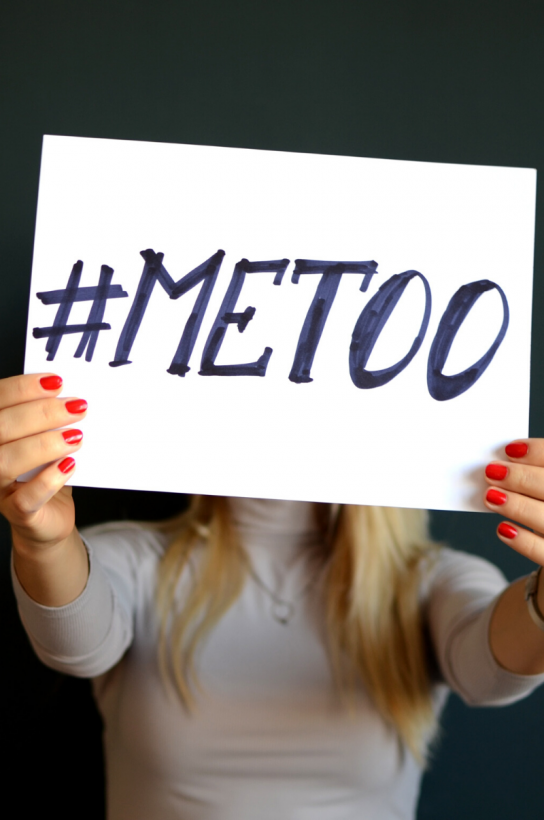#MeToo: Protect your workforce from sexual harassment issues
Published 27 March 2020

Sponsored content in collaboration with Howard Kennedy.
Lydia Christie is a legal director at Howard Kennedy. Here she outlines how to protect both your workforce and your business from sexual harassment issues.
The #MeToo movement continues to make headlines, not least with the verdict in the recent Harvey Weinstein US trial. Meanwhile media reports and surveys continue to highlight the #MeToo campaign across all industry sectors. In the UK, the light was brightly shone on the hospitality sector in 2018 following news of the sexual harassment of event staff at the annual men-only dinner of the charity, the Presidents Club.
The Charity Commission launched its own investigation into the allegations and in respect of the safeguarding of staff said in its report: “The absence of any clear procedures and policies to deal with harassment or improper behaviour was in stark contrast to the measures taken to protect the privacy of the guests.” The reports, investigations and public response ultimately led to the closure of the Presidents Club.
This is only one highly publicised example of a problem that is impacting the hospitality sector on a big scale. Long working hours, significant public interaction, alcohol being sold and workers worried about job security – who may be reluctant to report incidents – may all be part of the recipe that makes sexual harassment in the hospitality sector an urgent issue.
In January this year, the BBC reported the experiences of harassment of a number of chefs working in London’s restaurants. According to CODE Hospitality, nine out of 10 people working in the industry have either witnessed or experienced bullying. This is consistent with the union Unite’s “Not on the Menu” survey results in 2018 which revealed that 90% of hospitality sta had been harassed at work. Of those who reported they were sexually harassed at work, more than half said the perpetrators were members of the public and 22% said they were harassed by a manager.
These statistics beg the question: what can you do to address this issue?
Recognising sexual harassment work – what is sexual harassment? As an employment lawyer, I often hear “it was just banter”. Of course the concept of banter itself is not unlawful, but banter will cross the line if it falls into the legal de nition of sexual harassment. The Equality Act 2010 prohibits various types of discrimination and harassment.
Sexual harassment is one of the prohibited types of harassment and is defined as: unwanted conduct of a sexual nature that has the purpose or e ect of violating dignity, or creating an intimidating, hostile, degrading, humiliating or o ensive environment.
Assessing whether conduct falls within this definition requires a subjective assessment looking at the conduct from the perspective of the recipient to ask whether the conduct had the effect described above; and also an objective assessment to ask whether it was reasonable in the circumstances for the conduct to have that effect.
Guidance from the Equality and Human Rights Commission Code of Practice says that conduct of a sexual nature can cover “verbal, non- verbal or physical conduct including unwelcome sexual advances, touching, forms of sexual assault, sexual jokes, displaying pornographic photos or drawings or sending emails with material of a sexual nature.”
Employment Tribunals consider cases of harassment by looking at the facts which must be proved on the “balance of probabilities” test; based on the evidence, is it more likely than not that the event occurred?
What are the legal implications for individuals and your business?
From an employment-law perspective, there are a number of potential legal claims that can arise, with potential liability for individuals and the organisation.
• Employees can be individually liable for claims of sexual harassment under the Equality Act 2010. This is also the case for discrimination claims.
• Employers can be liable for the acts of their employees where those acts are done in the course of their employment. Acts done in the course of employment are not limited to events which take place at work, and it is not always easy to draw a line between work and non-work events, particularly where there is a relationship between the individuals involved outside of work.
There is currently no legislation protecting workers from harassment by third parties, for example by customers. This is an issue that the Government included in its Consultation on Sexual Harassment in the Workplace (July – October 2019). In the meantime, businesses should not ignore the risks of third-party harassment of their staff.
What can you do to protect your workers and your business?
Eliminating sexual harassment at work requires businesses to take proactive steps, including encouraging workers to report incidents, investigating incidents fairly and sensitively, and then taking appropriate formal action where the allegations are upheld.
If your business faces a sexual harassment claim by one of its workers, the business will need to be able to successfully demonstrate that
it took all reasonable steps to prevent its employees from harassing others or from doing any of the other prohibited discriminatory acts (the “reasonable steps defence”). The burden falls on the business to show the steps that were taken.
What are reasonable steps?
Below is a non-exhaustive list of suggested practical steps:
• Ensure you have clear anti-harassment policies in place, including procedures for dealing with harassment by customers, and that these are properly communicated in anaccessible way to staff.
• Ensure all staff, including casual staff, know about the policies and where to find them and how to raise complaints or report any incidents.
• Consider translating policies intolanguages common amongst your staff.
• Consider whether policies on relationships at work and/or a code of conduct are required.
• Train all managers on the operation of your policies, and ensure these are operated fairly and effectively in practice.
• Consider conducting regular staff engagement surveys for staff feedback to ascertain staff confidence in management dealing with these types of complaints. Staff will only report concerns if they know and trust they will be dealt with fairly and without detrimental repercussions for the person who reported the incident.
Lydia Christie is a legal director regularly advising clients in the hospitality sector on the full range of employment law issues, both contentious and non-contentious, from recruitment through to termination of employment.
Howard Kennedy is a London-based, full-service law firm, specialising in providing straightforward advice to entrepreneurial businesses and individuals on domestic and international matters
This article was first published in Issue 22 of the CODE Quarterly magazine. To read the digital version, please click here




